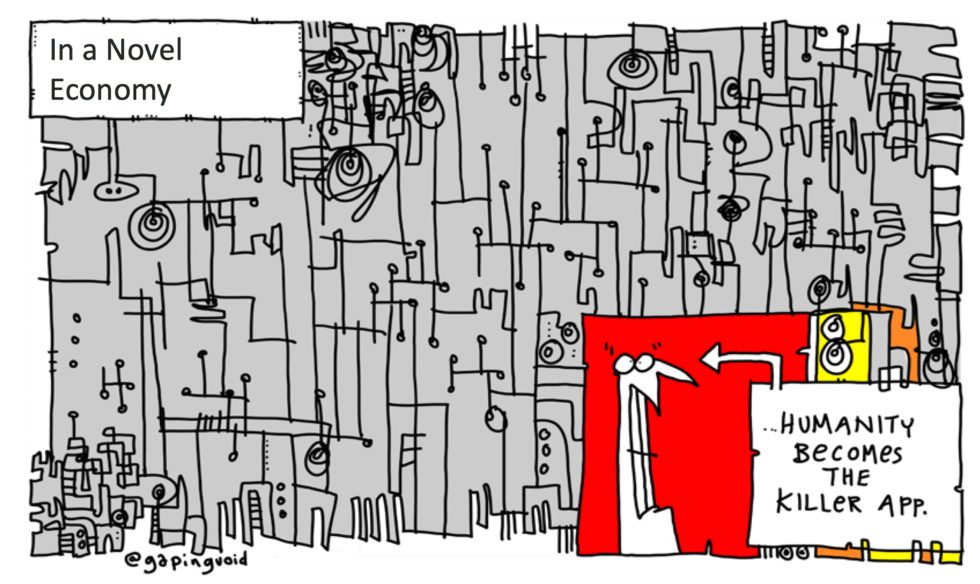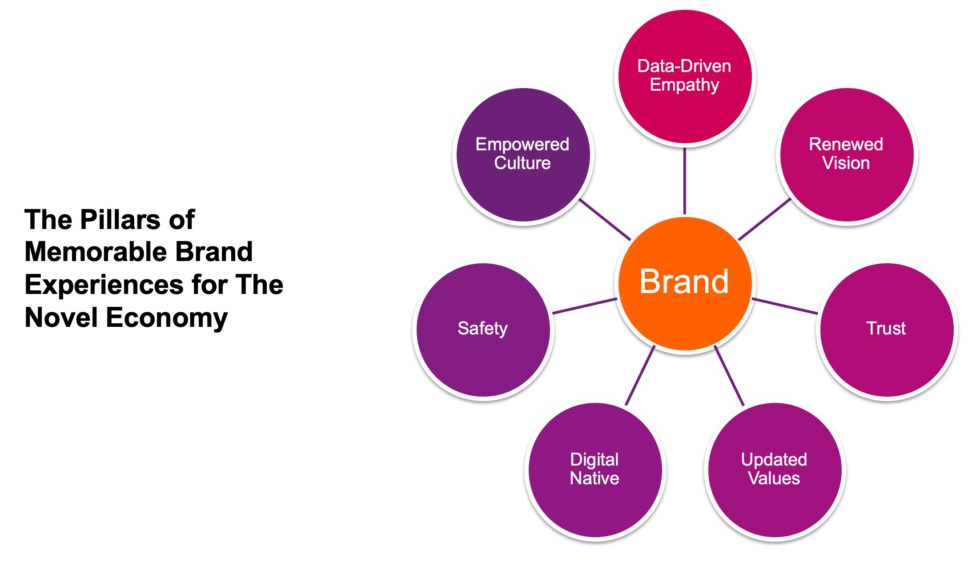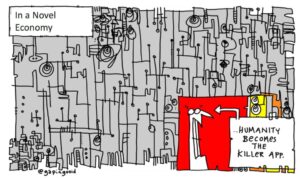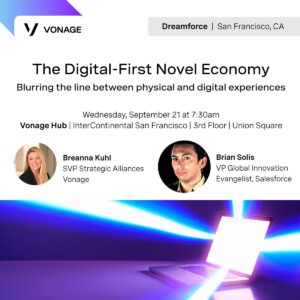
Frost & Sullivan recently presented a Webinar Week Series, consisting of five days of 30-minute virtual presentations designed to help participants generate effortless and efficient customer experiences. On Wednesday, June 17th Brian Solis, Global Innovation Evangelist, Salesforce, shared his insights and predictions about The Rise of Generation Novel aka Gen N and the Novel Economy. Read on for a summary of his key take-aways and heartfelt advice about letting go of the “old normal,” and looking ahead to new ways of doing business, communicating with customers, and creating a better world.
Abstract:
We are now entering the Novel Economy and witnessing the rise of a new generation of customer and employee, Generation-Novel or Gen-N. In this engaging session, world-renowned digital anthropologist, keynote speaker and best-selling author Brian Solis shared fresh perspectives on the customer evolution.
Key Take-Aways:
- Examples of how COVID-19 changed the course of humanity and consumerism
- Insight into how the Novel Economy changes our trajectory and how this “new normal” breaks out into 3 phases of action over the next 36 months
- Key findings on why data pre-March 1st 2020 is irrelevant and how data-driven empathy will lead to newfound innovation to engage Gen-N
- A framework for navigating the Novel Economy and building a more relevant, disruption-proof digital business
Brian Solis opened his presentation by showing pictures of what the “new normal” looks like, i.e. people wearing masks, dining out behind shields and getting their temperatures taken with thermometers resembling instruments from a futuristic movie. Describing it as our “new operating system” Brian suggested that we all get used to living this way for a while. More importantly, he advised listeners to use this moment in time to reflect on how we collectively arrived here (perhaps some not-so-good collective decisions) and advised listeners to leverage this “global time out” to re-imagine and re-define a better future.
Brian stated that many people, including business leaders, may be working towards a return to the old normal…but that old normal may never fully return. He hypothesized that many of the of the Chief Financial Officers and C-Suite executives who run organizations today may not be optimally equipped to think creatively and innovate new ways of working. Brian reminded us that imagination is not cancelled in 2020, nor is hope or re-designing a better future for that matter.
Next, he outlined 3 key phases of the novel economy as follows:
Phase 1: Stabilization: Survive and react to crisis, and seek business continuity
Phase 2: Alive: Build, secure and operationalize for transitions. Master the new normal and start exploring innovative ideas and business model opportunities
Phase 3: Thrive: The next normal of business could include improving operations, innovating and disrupting. There is an opportunity to create a culture of innovation, to accelerate decision-making and to build new ways of working to create real value

Before COVID-19, Brian was focused on what he termed Generation C – the generation of digitally connected customers. This generation is heavily influenced by the very nature of digital transactions and experiences; it shapes how they feel, think and operate in the marketplace. Additionally, the experience and corresponding quarantining that accompanied COVID-19 caused digital interactions to accelerate and evolve, as well as the overall customer experience. And this is the moment in time when Brian believes “Generation N” began to emerge…shaped by personal and societal constraints like mask-wearing and abrupt work from home transitions, as well as lifestyle and health traumas wrought by the pandemic, all those who lived through it will never be quite the same.
Brian used the term somatic marker to help define this experience and its effects. Developed by Antonio Damasio and other researchers, somatic marker theory hypothesizes that strong emotions guide behaviors and subsequent decision making. In the case of COVID-19, these might include new ways of shopping, living, and a more pervasive digital first mindset.
There were also good things that have come out of this difficult time, showcasing the resilience of humans and their ability to come together to create and share music, art and entertainment (albeit virtually) for example. Actions like fundraisers, and support across cultures and countries for front-line workers resonated deeply with many.

A new, necessary focus on outdoor activities and nature led to a resurgence in activities like walking, biking and exercising, in turn leading to strong demand for products and services that support these experiences. Movies skipping cinema debuts and going directly to customers is another example of how the pandemic has changed consumer habits as well as how products and services are provided.
Brian believes that our collective pandemic experiences will create new customer demands and presents a very real business opportunity to create an improved customer journey, one that takes into account “Thrive” qualities such as improved operations, innovation and more value as discussed above. He recommended improving key customer touchpoints by showing empathy, communicating an authentic purpose and aligning values to create better customer experiences. Brian believes that “brands can become the light that customers are seeking” and ended his thoughtful presentation by stating, “In a time of darkness be the light.”
Credit:
Patricia Jacoby, Senior Editor, Marketing, Frost & Sullivan, 4th Annual Sales Team Accelerator Retreat

Brian Solis | Author, Keynote Speaker, Futurist
Brian Solis is world-renowned digital analyst, anthropologist and futurist. He is also a sought-after keynote speaker and an 8x best-selling author. In his new book, Lifescale: How to live a more creative, productive and happy life, Brian tackles the struggles of living in a world rife with constant digital distractions. His previous books, X: The Experience When Business Meets Design and What’s the Future of Business explore the future of customer and user experience design and modernizing customer engagement in the four moments of truth.
Invite him to speak at your next event or bring him in to your organization to inspire colleagues, executives and boards of directors.





Leave a Reply